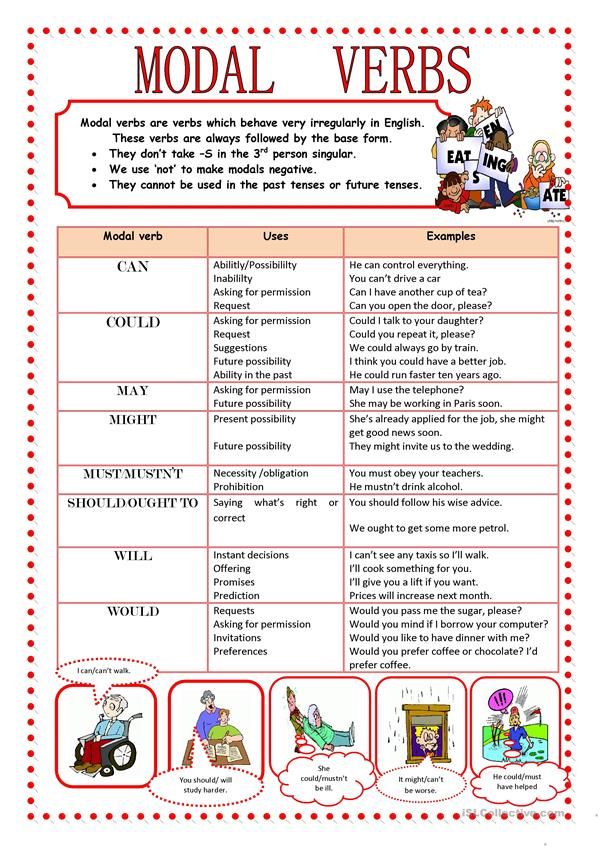Student stress management tips
12 Tips to Manage Stress for College Students
Stress in college is inevitable. According to the Anxiety and Depression Association of America, 80% of college students frequently or sometimes experience stress daily. Stress is also a contributing factor to poor academic performance for one in three students. College students can develop coping strategies to combat stress triggers and improve their experience while in school.
What causes stress in college students?
According to the American College Health Association (ACHA), 44.9% of college students experience more than average stress levels, while 12.7% experience overwhelming stress levels. With so many academic demands and responsibilities as a student, it’s expected that you might feel high levels of stress from time to time. But, when stress disrupts daily activities, you need to determine the cause of your stress and how to manage it.
These are some of the most common causes of stress for college students.
Living away from home
Transitioning from high school to college is exciting for many students because it’s their first time living away from home. However, with independence comes new responsibilities and taking accountability for your actions. It can be overwhelming adapting to a new environment and learning how to take care of yourself. It’s normal for students to experience sadness and high stress levels when they realize how far away they are from their support system of family and friends.
The rising cost of college is a significant source of stress for many low-income families and students who put themselves through school while working. One study found that 70% of college students experienced financial stress. This stress comes from working out how to manage college expenses, including tuition, textbook costs, meal plans, and general expenses, on top of a full course load. For many students, this additional stress increases the chance of dropping out of school.
One of the most common stressors in college is academic performance. There is enormous pressure placed on students’ academic performance, which can negatively affect mental health. This pressure can stem from maintaining certain grades to keep a scholarship, not wanting to disappoint parents or personal expectations. If academic stress isn’t managed, it can lead to mental health issues such as anxiety, depression, substance use, burnout, and declining health and well-being.
Conflict with a roommate
While some colleges provide the option to choose a private room in a residence hall, most schools only offer shared living spaces. Putting a group of strangers together in a small room can easily lead to tension and conflict if the individuals don’t get along or become friends. Research has shown that roommate conflict impacts grades and increases the chance of a student dropping out.
College is an excellent place for students to form new relationships while still maintaining relationships that existed before leaving for school. Connections with family, friends, and partners can be a great stress reliever. But, if these connections go awry, a student may experience significant stress and anxiety. It’s crucial to identify if a relationship is making you feel supported or more stressed out. Stressful relationships can impact academic performance and mental health if a healthy solution can’t be found.
Connections with family, friends, and partners can be a great stress reliever. But, if these connections go awry, a student may experience significant stress and anxiety. It’s crucial to identify if a relationship is making you feel supported or more stressed out. Stressful relationships can impact academic performance and mental health if a healthy solution can’t be found.
Post-graduation plans
It’s common for students preparing to graduate to start thinking about what comes next, but it can also be stressful and scary. Post-graduation stress disorder can make you feel emotionally and mentally drained when making decisions on the next chapter of your life. It can be daunting to think about leaving behind the life you created in college and taking your first steps into the real world. For students dealing with this type of stress, it’s important to find coping mechanisms before symptoms get worse.
Stress management tips for college students
Long-term stress can have detrimental effects if left unmanaged. Not only can it affect your mental and physical health, but also grades and relationships. Identifying and understanding where your stress comes from can help you better manage it. Consider these twelve ways to manage stress when you feel anxious or overwhelmed.
Not only can it affect your mental and physical health, but also grades and relationships. Identifying and understanding where your stress comes from can help you better manage it. Consider these twelve ways to manage stress when you feel anxious or overwhelmed.
1. Get proper rest and sleep
American Psychological Association notes that good sleep allows our brains to recharge, repair our muscles, promote memory consolidation, and boost the immune system. In fact, 21 percent of adults feel higher levels of stress from not getting enough sleep.
Many college students pull all-nighters, studying through the night to prepare for an exam, but this type of habit can lead to sleep deprivation and insomnia. Depriving your body of sleep can lower cognitive function, academic performance, and mental health. If you have trouble sleeping at night, try techniques such as avoiding excess caffeine, turning down the lights, or putting away technology at least one hour before bed.
2.
 Focus on health and nutrition
Focus on health and nutritionWhen you think of college weight gain, it’s usually associated with the “freshman 15.” However, it’s not necessarily true that you’ll gain 15 pounds in your first year of college. According to Harvard Medical School, stress can both shut down the appetite by releasing a corticotropin-releasing hormone and increase the appetite by releasing cortisol.
When you pair the freedom to choose what and when along with academic stress, college students are more likely to cope by overeating or undereating. Developing good habits like eating a balanced diet, exercising regularly, and getting enough sleep can help manage stress and prevent dramatic weight loss or weight gain.
3. Be active
The Mayo Clinic suggests that regular exercise increases overall health and can reduce stress. Exercise is also effective in reducing fatigue, improving mental clarity, and enhancing cognitive function. After physical activity, the brain produces feel-good neurotransmitters called endorphins that act as natural painkillers.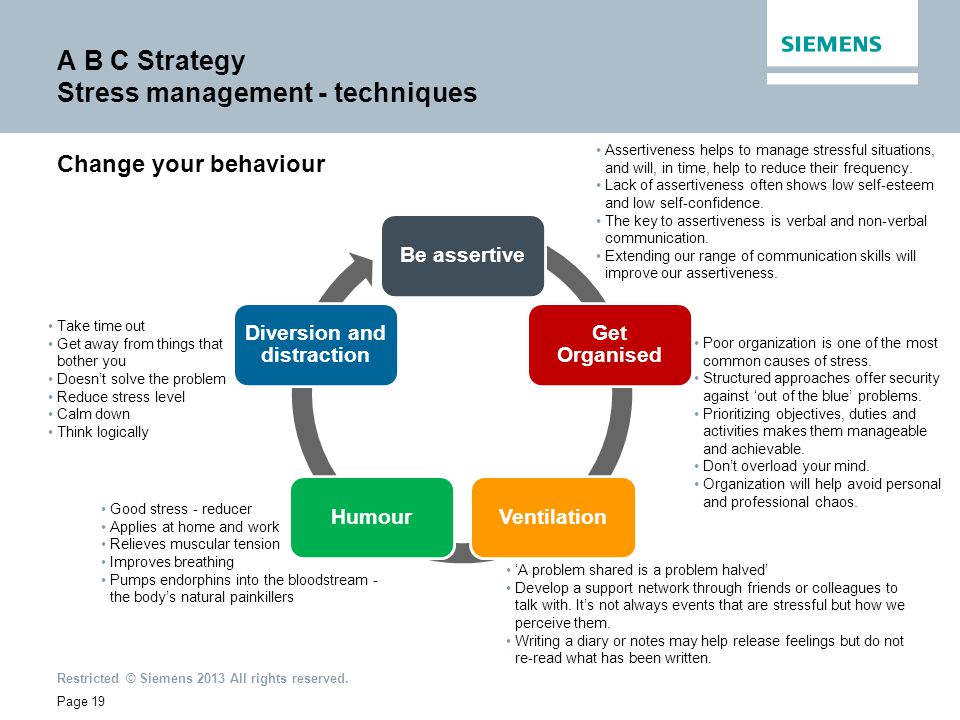 Relaxation techniques such as meditation, acupuncture, massage therapy, and deep breathing can also produce endorphins.
Relaxation techniques such as meditation, acupuncture, massage therapy, and deep breathing can also produce endorphins.
If you’re having trouble getting motivated to be active, try inviting a friend, changing up your routine, or exercising in short-time intervals. Adding just 15 minutes of physical activity to your daily routine can help your physical and mental health.
4. Have a stress outlet
Having a healthy outlet to turn to in times of stress can help calm your mind and clarify how to move forward in a stressful situation. Things like a hobby, social club, physical exercise can all be outlets for relieving stress.
5. Find connections
There are numerous benefits of having a solid support system while in college. Personal connections provide stress-relief hormones that counteract the body’s fight or flight response. Surrounding yourself with people that you trust can also help you feel safe and calm.
The Mayo Clinic says that “social isolation and loneliness are associated with a greater risk of poor mental health and poor cardiovascular health, as well as other health problems.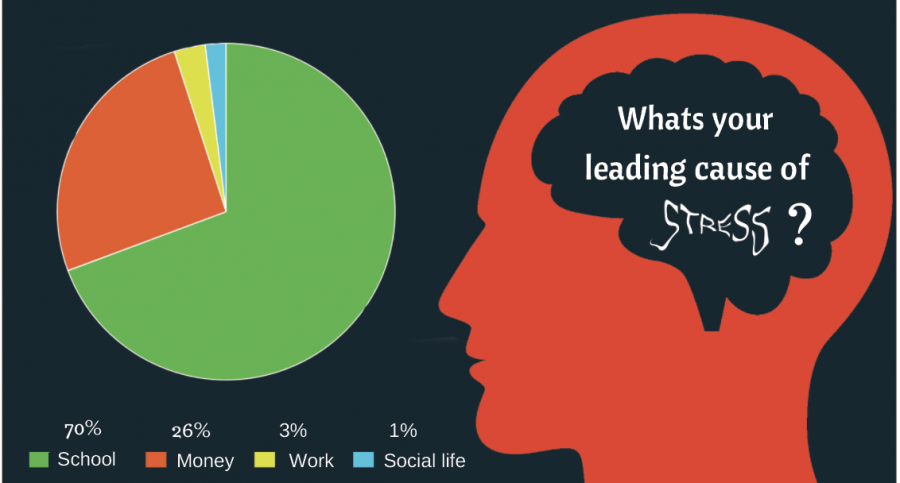 ” College is a great time to make new friends. Joining a club or organization, talking to classmates, volunteering, or being on an intramural sports team can help create connections on and off-campus.
” College is a great time to make new friends. Joining a club or organization, talking to classmates, volunteering, or being on an intramural sports team can help create connections on and off-campus.
6. Practice self-care
Stress causes tension in the body through stiff and sore muscles, headaches, or lowered immune systems. Setting aside time in your busy schedule to prioritize self-care helps reduce tension and stress. Having a spa day, taking a bubble bath, meditating, or taking yourself on a date are just some of the ways you can practice relaxation.
7. Manage time effectively
Ineffective time management can cause significant stress for college students. Approximately 87% of college students said they would perform better in their classes if they had better time management skills. Experiencing college life for the first time can make it tempting to choose social life over schoolwork.
Developing time management strategies helps you stay organized and better prioritize your most important tasks. Writing down your upcoming assignments and exams in a planner or on your phone can help you know what’s next and prioritize your time. When you know you have to study or do an assignment, you can schedule your day accordingly. Effective time management can help improve academic performance and keep you organized, which, in turn, can lower stress and anxiety.
Writing down your upcoming assignments and exams in a planner or on your phone can help you know what’s next and prioritize your time. When you know you have to study or do an assignment, you can schedule your day accordingly. Effective time management can help improve academic performance and keep you organized, which, in turn, can lower stress and anxiety.
8. Stay organized
It may seem overwhelming to keep track of everything with a schedule crammed full of classes, assignments, extracurricular and social activities. But, not having organizational skills will only add more stress and pressure to your plate. Unorganized students typically have less academic success than organized students.
Before assignments start piling up, it’s crucial to find ways to stay organized. Calendars and planners are valuable organizational tools. Try to keep your living environment and workspace tidy and organized as well to reduce distraction and anxiety.
9. Practice positive thinking
Research has shown that there are numerous benefits to positive thinking when you’re feeling stressed out.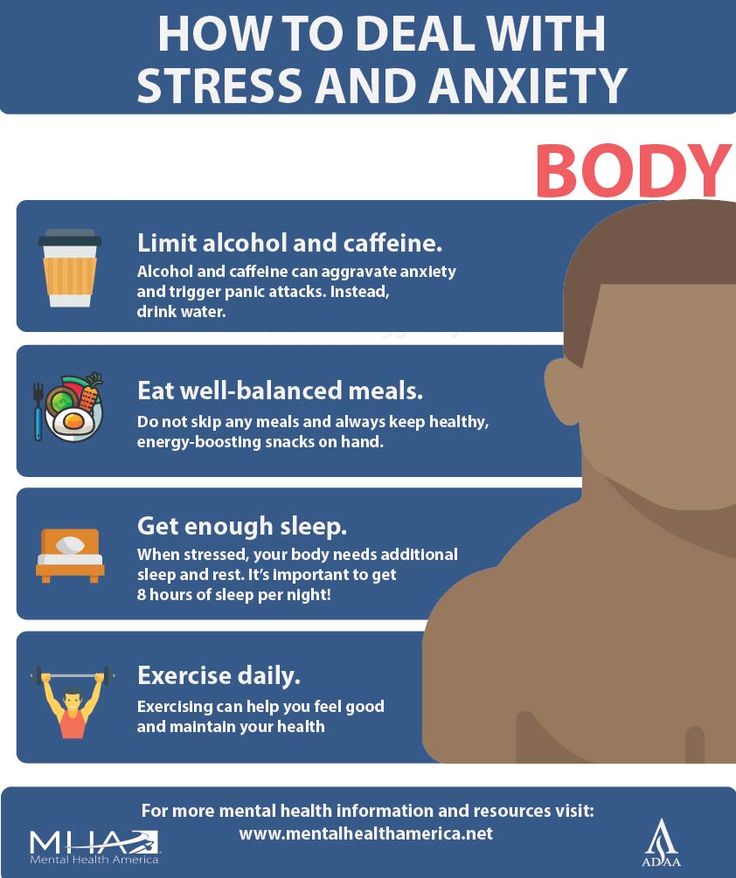 Positive thoughts can improve physical well-being and provide a clear mind. When you feel yourself thinking negatively, counteract these thoughts by giving yourself positive encouragement. Positive reinforcement during stressful times can lessen the chance of developing chronic stress.
Positive thoughts can improve physical well-being and provide a clear mind. When you feel yourself thinking negatively, counteract these thoughts by giving yourself positive encouragement. Positive reinforcement during stressful times can lessen the chance of developing chronic stress.
10. Try mindfulness exercises
College students are busy and constantly distracted, which makes it challenging to be present in the moment. Mindfulness helps to drown out the background noise and increase awareness. Meditation is a great way to practice mindfulness, but you can also incorporate it into daily activities. This will not only improve memory and focus but is also a beneficial way to relieve stress.
11. Start journaling
Journaling can be very therapeutic and lower stress levels. Write down your daily thoughts and feelings or keep a stress journal. This type of self-reflection can help you find a pattern of regular stress in your life and examine how you deal with it. This will help put things into perspective so that you can effectively manage these stressors.
This will help put things into perspective so that you can effectively manage these stressors.
12. Don’t be afraid to reach out for help
Even before you feel like the stress has become too much to handle, reach out for help. Find out what mental health resources your school offers or take the time to talk to a professional. A mental health professional can determine your stress triggers, develop a mental health plan, and strategize healthy ways to cope with stress.
How telehealth can support students who need help managing stress
Focused on improving the health and wellness of students, TimelyMD offers colleges and universities virtual mental health resources and services powered by telehealth. TimelyMD’s total health and well-being solution is an extension of on-campus health services. With 24/7/365 access to providers in all 50 states, TimelyMD helps students manage stress anytime, anywhere.
Contact us to explore TimelyMD’s telehealth programs that deliver high-quality, on-demand mental health care for students.
The Student's Guide to Managing Stress at Any Age
Feeling overwhelmed? Excelling beyond school-related stress is possible with time management, self-care, and social support.
It’s natural to experience academic stress when you’re being constantly evaluated and facing a heavy workload.
Whether you’re facing a nitpicky teacher, a tight deadline, or a competitive classmate, academic stress can be hard. But be encouraged… there are practical approaches to manage your classes and your level of overwhelm so you can pass your tests and effectively deal with stress.
Your season as a student can be an opportune time to fortify your relationship with time, productivity, and stress management.
The healthy habits you build now can help carry you through other seasons in your life as well. Here’s how to relieve stress from school.
Manage your time in a way that works for you
Everyone’s relationship to time is different based on your immediate support needs and goals. Time management options can include:
Time management options can include:
- Installing apps like the Pomodoro technique, to help you break up tasks into 25-minute increments. You can try it here.
- Hiring a time management coach if you have the resources to do so.
- Getting targeted mental health support from a school counselor, therapist, or life coach to help unpack the emotions around studying and completing tasks.
If you manage a condition such as ADHD, you might consider these productivity study tips that could apply to all students or professionals:
- Time boxing devotes a set amount of time to each endeavor. Time boxing may help you chip away at a task over time, with small steps that provide value along the way, before moving on to the next time-boxed task.
- Time blocking is exactly what it sounds like — blocking out time on your calendar to work on elements of a larger project.
- Task batching and day theming are so named as they help support productivity by creating an assembly line so-to-speak of predictable segments for your similar efforts.
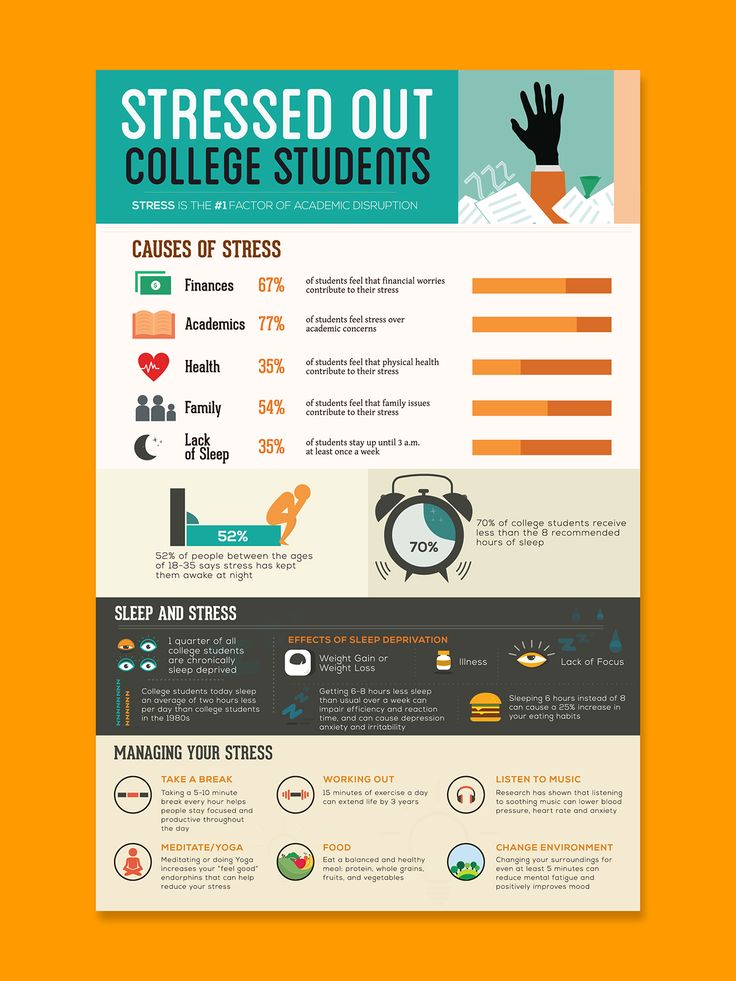
Maintain a social life
It’s understandable to feel like there’s no time for a social life. You may have even considered canceling plans with friends to study or work on assignments. Before you postpone your plans, consider the importance of social support.
A 2016 survey of 67 college students during and after college found that maintaining tight networks of friendships can positively impact academic success and well-being.
Catching a movie with friends or taking a break to have a virtual coffee date can give your brain a break from your work. You might find that taking time away from schoolwork to be with friends gives you fresh energy to complete your tasks.
Push through procrastination
If you have a history of procrastination, try to offer yourself compassion. Not everyone grows up in an environment that teaches time management or self-regulation. Overcoming the urge to delay tasks takes time.
Try to create a plan to push through procrastination.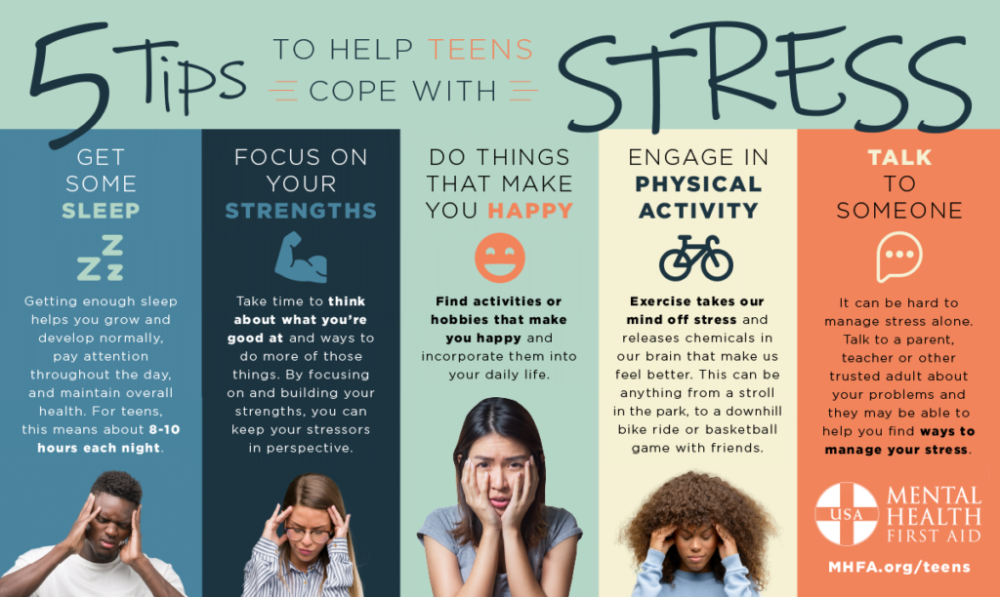 You might consider:
You might consider:
- finding an accountability partner
- leaning on positive self-talk
- downloading this “Goal Breakdown” worksheet from Therapist Aid
Keep perspective
Even if it takes a little while to change your relationship with stress, keep in mind that your efforts can make a difference in the long run.
An older 2012 survey found that developing strategies can be a powerful way to prevent the effects of long-term stress. Incremental steps are still forward progress.
Experts also say that reframing your narrative matters. A 2021 study found when students consider their stress to be a sign of growth, they are better able to manage academic overwhelm.
Practice self-care for your body and mind
What helps you feel relaxed and cared for? Try making a list of your stress relievers.
Here are some ideas to consider in getting you started:
- exercise, such as doing yoga or walking
- a bath or Jacuzzi soak
- a massage
- a hobby, such as cooking or creating art
- meditation or prayer for spiritual fulfillment
- deep breathing and relaxation techniques
The bright side of school-related stress is there’s a graduation date somewhere down the line.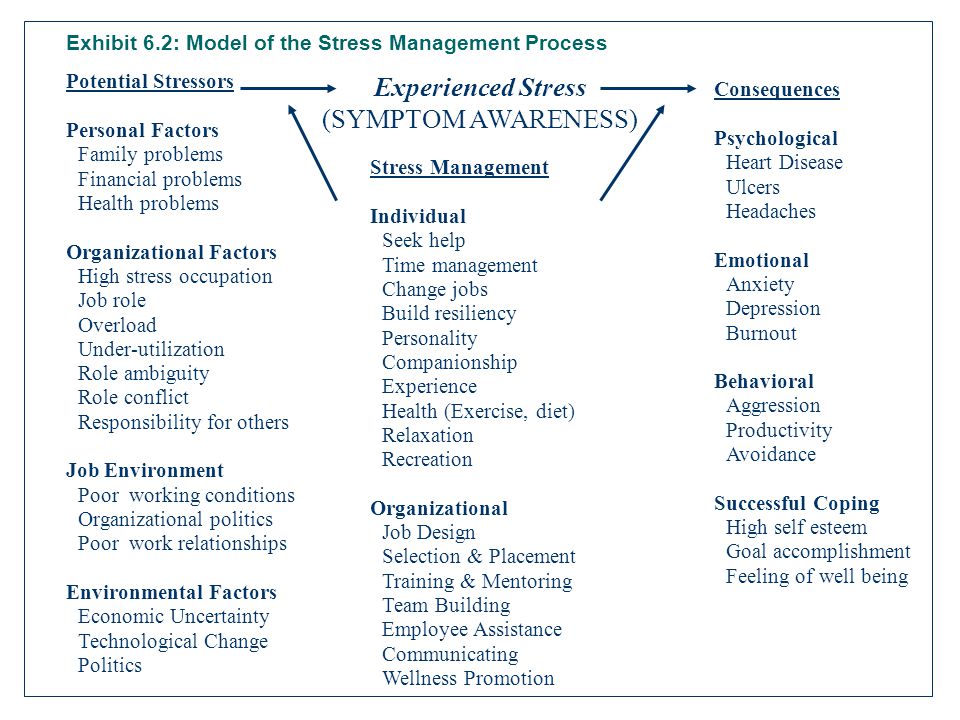 School doesn’t last forever!
School doesn’t last forever!
As you look at the road ahead in terms of accomplishments like grades, certificates, semesters, or degrees, it may help to also unpack the types of stress involved.
Academic stress can be parsed into three categories:
- performance assessment
- intensity of workload
- social relationships with teachers, peers, and friends
Students also face the stressors of everyday life related to finances, health, and social life, including:
- food and housing insecurity, which a 2017 study showed many students face
- being a first-generation college student
- being a student from a marginalized identity
- having a learning disability
- experiencing a mental health condition such as depression or schizophrenia
- being a parent in school
- being a student-athlete
Difference between stress and pressure
It’s common to hear “stress” and “pressure” used interchangeably. But there’s a difference: pressure refers to external expectations to perform or deliver and stress refers to internal perceptions of unpreparedness or lack of resources.
But there’s a difference: pressure refers to external expectations to perform or deliver and stress refers to internal perceptions of unpreparedness or lack of resources.
For example, stress would be what you feel when you have three assignments due in 3 days and not enough hours in the day to complete them.
And pressure would be having a low grade in a class and knowing you need a specific high score on the upcoming final to pass the course.
Feeling the effects of stress or pressure?
If the pressure of producing a specific result or the stress of feeling as if you don’t have the resources to deliver is causing you anxiety or panic, help is available right now.
For a sudden onset of distress, here are 3 deep breathing exercises to ease anxiety.
But if you feel as though compounding stress isn’t being helped by self-soothing techniques and perhaps you’re afraid of what you might do, here’s where to get help if you’re contemplating suicide.
The advent of apps to soothe stress, online support groups, plus virtual life coaching and therapy have made getting help in addressing stress easier than ever before.
When the body goes into a stress response, it can enter flight, fright, or freeze mode, which can do damage if it becomes constant.
A 2014 analysis found that experiences of academic stress can predict chronic stress in the future.
The long-term effects of stress include:
- high blood pressure
- weakened immune system
- anxiety
- depression
Academic performance can also be influenced. In a large 2019 survey of nearly 68,000 college students, 34% reported that academic stress resulted in an incomplete or dropped course, or a lower grade.
Rest assured, you can get help to complete your objectives and manage stress with the mobile resources above and the stress management tips below.
Changing your relationship with stress is possible. Working on how you manage and perceive stress can be efforts well spent for both your physical and mental health.
Celebrating your successes along the way can be helpful and encouraging. Consider trying to honor the deadlines you hit, the techniques you master, and the ways you take care of yourself.
You’re not alone in coping with stress. Talking about what you’re going through with a support group, life coach, or therapist can help reduce feelings of isolation and maybe even help you feel a little calmer about your studies.
How can a student relieve stress or be less stressed?
Tips to help the student get rid of stress
According to statistical studies conducted around the world, 81% of students suffer from nervous, physical and mental exhaustion by the end of the first year of study. Luckily, we have ways to fix this problem. Meet: tools that will help you organize your own time, as well as have fun and easily live your student years!
But first, some sad facts.
Sad facts about stress
- 60% of students suffer from "high" and "very high" levels of stress
- 26% of students note a 9-fold increase in mental disorders over the past 15 years.

- 42% of students noted an increase in tuition fees since 2002.
- 34% of students are confident in the negative impact of stress on learning.
How to get rid of the study routine
The less time a student spends in class, the more effectively he will be able to organize his life and study. Best Helpers Announced!
- Cribs. Great for preparing for tests, tests, exams. Engage in their preparation well in advance of the session, and you will see how much easier your study will become with them.
- Book. Great for quickly abstracting from reality. The ability to abstract helps to look at the problem from a different angle. What, if not an interesting book, will do this task so well?
- Diary. Great for planning educational and social activities. Reminders about important meetings, events, dates will always help you solve problems in a timely and efficient manner.
Solving money issues
The increase in the cost of education becomes a heavy burden for the student.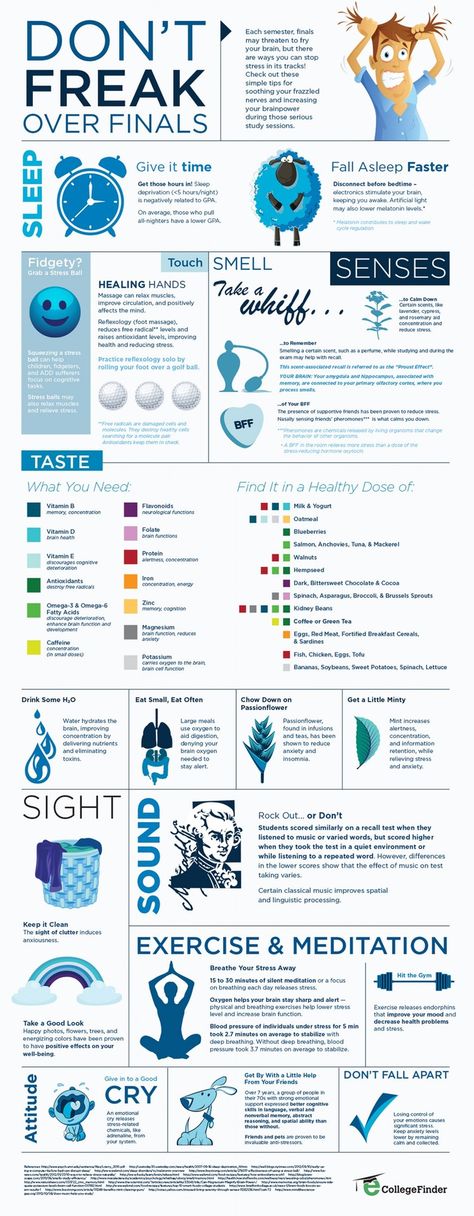 What do you need in order not to experience this oppressive feeling and not climb out of the budget? We read and memorize:
What do you need in order not to experience this oppressive feeling and not climb out of the budget? We read and memorize:
- Cost accounting. Great for keeping track of current debt. Tracking the status of your accounts will help you avoid debt and unnecessary petty expenses.
- Gold reserve. Great for financial independence. Even small savings will help create a reserve that will allow you to survive difficult times.
- Shopping list. Great for planning food expenses. Such a simple move will help to avoid unnecessary purchases and unnecessary expenses.
How to improve the condition of the body
To get rid of a bad mood and discomfort, engage in sports training or meditation. This will be easier if you follow these tips:
- Easy jog. Great for "clearing" the head. This type of training will help you “throw out” unnecessary garbage from your head and prepare it for study.
- Calorie count. Great for maintaining a figure and organizing proper nutrition.
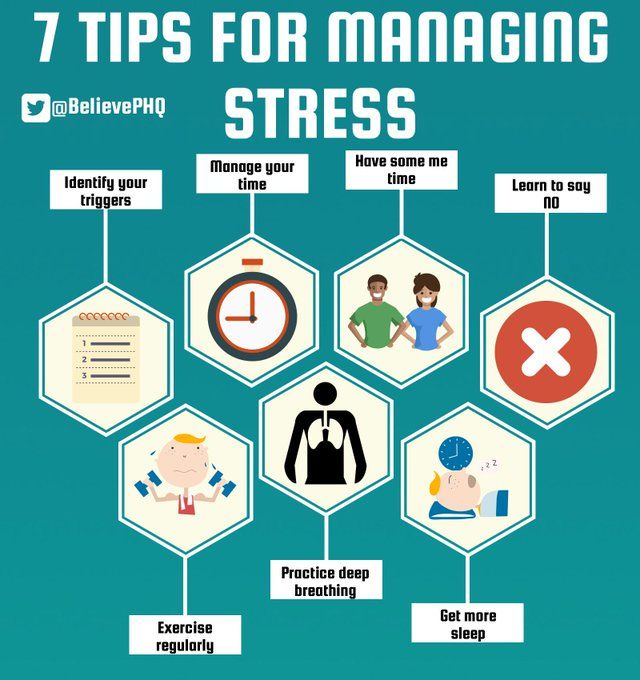 Proper nutrition will help keep both the physical and mental state of the student in shape.
Proper nutrition will help keep both the physical and mental state of the student in shape. - Water. Great for everything! Water is life! Drink more water and your body will thank you for it.
By the way! For our readers now there is a 10% discount on any kind of work
How to improve the state of mind
Freshmen are in limbo, not experiencing a sense of support, trust in others. The creation of a strong group with common interests will help to solve this problem. What will help them?
- Social networks. Great for new acquaintances and communication. Getting to know each other in the virtual world is much easier than in the real world. You just have to support virtual dating in reality!
- Social activity. Great for spiritual enrichment and increasing popularity. Go to concerts, exhibitions, theaters - this way you will not only make many interesting acquaintances, but also develop spiritually.
- Hobby.
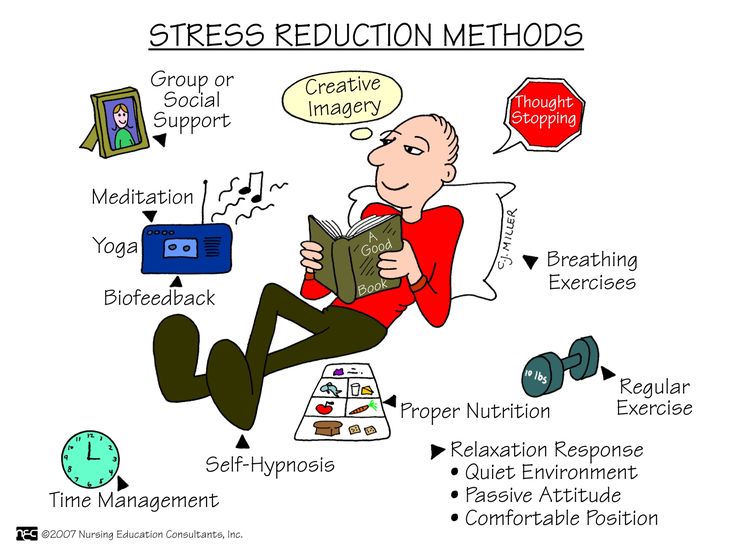 Great for stress relief and useful dating. Hobbies help to avoid depression and unpleasant manifestations of stress, as well as make pleasant acquaintances.
Great for stress relief and useful dating. Hobbies help to avoid depression and unpleasant manifestations of stress, as well as make pleasant acquaintances.
And in order to have time to do all this, you can order term papers, theses, essays and other educational papers from professionals.
Author: Natalia
Natalia is a content marketer and blogger, but all this does not prevent her from remaining an adequate person. He believes in all the colors of the rainbow and does not believe in the theory of a worldwide conspiracy. He is fond of "neurochiromancy" and secretly dreams of recreating the Library of Alexandria at home.
Guidelines for students "Management of stress in educational activities" | Educational and methodical material on the topic:
Stress management in educational activities.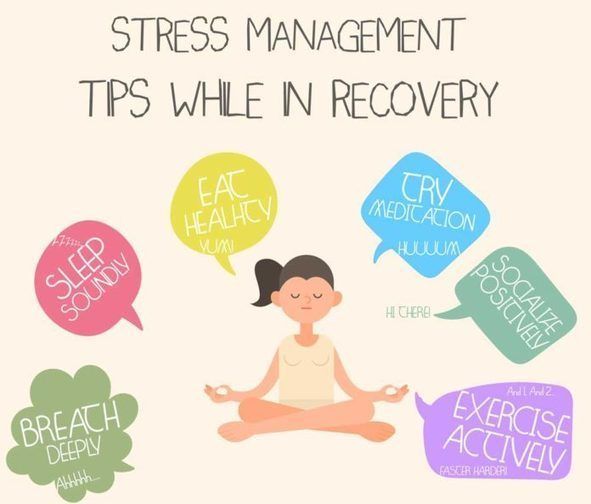
Symptoms of stress are physiological and psychological manifestations: frequent headache, loss of appetite, unreasonable crying, insomnia and waking up in the morning. A constant feeling of tiredness and exhaustion, a feeling of anxiety and apathy are sure signs of stress.
How to manage stress, resist it?
- Analyze your life situation, answer the question, is there really something going on that you cannot change or control?
- Lack of sleep can lead to stress. Sleep at least 7 - 8 hours a day.
- Don't give too much importance to your "terrible load". Tune in to the positive. Say to yourself: “I can do it, I will succeed, I will pass, retake, I will write the paper well.”
- Do what you used to think “I can't do it, I can't learn it”, try it! Most young people have good memory resources, but because of laziness they do not use them.
- If you are under stress, then minimize the number of events in your life for a short period of time.
 Stay home after class, get enough sleep, take a bath, take your time, don't make important decisions.
Stay home after class, get enough sleep, take a bath, take your time, don't make important decisions. - Avoid excessive emotional reactions: why hate when you can just feel antipathy, why be indignant - you can be slightly annoyed.
- Learn to set realistic goals.
- Do not get stuck on small things, in a state of stress, pay attention only to the most important things.
- Don't forget to eat well. Do not drink strong tea and coffee. Do not drink alcohol, it can only create an illusion of well-being for a short time, but does not solve problems.
- Physical activity helps to fight stress, sports: running, swimming, playing sports.
- Do something useful for others (help mother, friend). Take a look around, someone is not easier than you. Feel needed.
Stress reduction exercises
Exercise: "Breathing exercises"
Deep, slow breathing promotes relaxation, soothes. Breathe through your nose, be aware that the inhaled air is cooler than the exhaled air.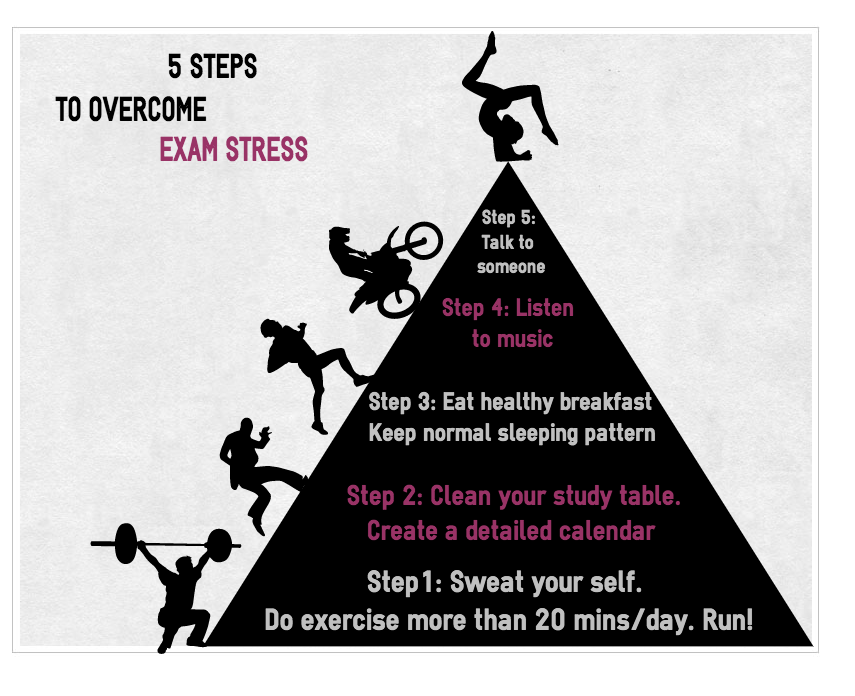 Inhale - count to 7, exhale - to 9.
Inhale - count to 7, exhale - to 9.
Muscle Relaxation Exercise
Tighten the leg muscles from the toes to the thighs, hold the tension for 3 seconds, then relax the muscles. Tighten and relax the rest of the muscle groups (abdominals, buttocks, chest muscles, arms). Finally, tighten and relax the muscles of the whole body. Muscle relaxation leads to brain relaxation.
Exercise "Concentration on the word"
Concentration exercises help relieve neuropsychic stress. Come up with a word or phrase that evokes positive associations in you. Concentrate your attention on this word in moments of excitement, tension, failure.
Counting Concentration Exercise
Slowly count to yourself from 10 to 1. If any thoughts appear while counting, start counting again.
Anti-stress massage exercise
Massage the back of the neck, collar area, temples, bridge of the nose, auricles (especially the earlobes). Click on the points above the eyebrows. Massage the hands, each finger from the tip to the base.





